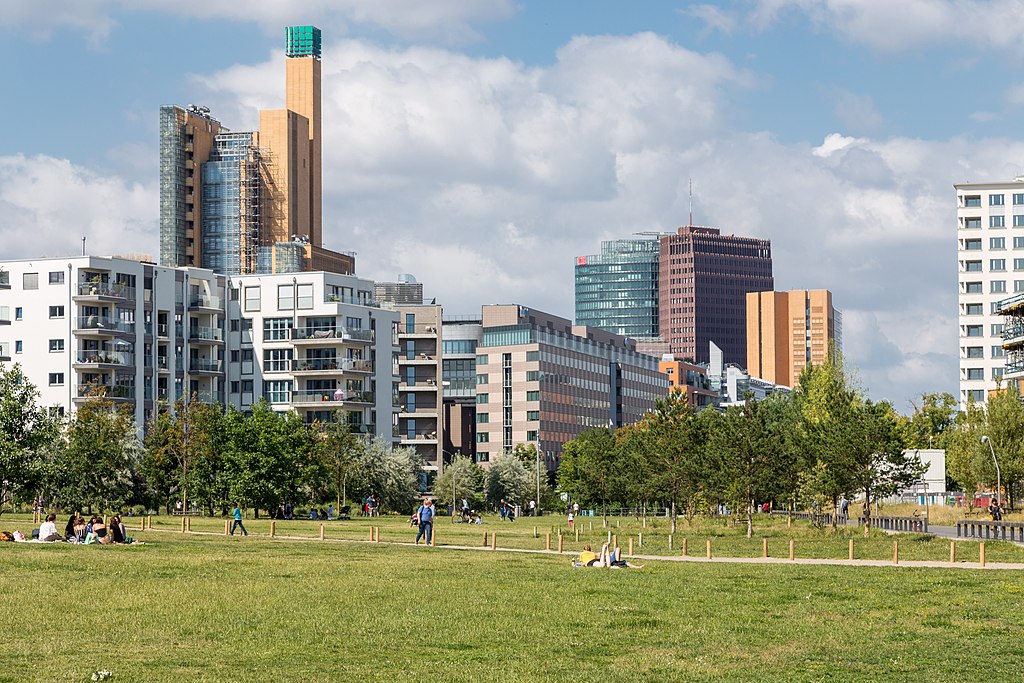With nearly 3.7 million inhabitants, Berlin is Germany’s capital city. As a city-state, Berlin is one of Germany’s 16 Länder, as the federal states in Germany are called. Situated approximately 112 miles (180 km) south of the Baltic Sea, it lies in the wide glacial valley of the Spree River, which runs through the centre of the city. Berlin extends over an area of 891.7 square kilometres and stands at an average altitude of 34 meters above sea level.
Berlin

Berlin is a metropolis with many facets. After the reunification of Germany and East and West Berlin in 1990, the unified Berlin was re-established as the country’s capital and political centre (replacing Bonn, the former capital of West Germany). In 1999, large parts of the Federal Government and the German Bundestag finally moved back to Berlin. Besides its political significance, Berlin is a famous cultural hub, known for its world-class museums, theatres, operas and concert halls, as well as its vibrant club scene and street art. The Brain City Berlin is a leading location for science and research. It is home to a number of prestigious universities such as the Freie Universität Berlin, the Humboldt Universität zu Berlin and the Technische Universität Berlin, with more than 35,000 students each, as well as renowned research institutions and think tanks. Berlin is a city of great historical significance with numerous landmarks that visualise the city’s multifaceted history. Some of the most important are the Brandenburg Gate (built in 1793), the Reichstag Building (which dates back to 1884), remnants of the Berlin Wall (taken down in November 1989) and the Holocaust memorial (inaugurated in 2003). The city is home to a diverse mix of economic activities: state-owned enterprises, creative industries, automotive manufacturers, (digital) media corporations, high-tech and telecommunication companies, as well as multiple digital pioneers that flourish in the city’s vibrant start-up scene. Until the Covid 19 crisis, tourism was constantly growing and brought about 14 million visitors (2019) to the city annually.
Berlin is also one of the world’s greenest cities, with parks, forests and water covering 37 percent of the city’s territory. One of the most famous parks, the Tempelhofer Feld, used to be the city’s airport and now is a green space nearly as large as New York City’s Central Park. Berlin’s numerous lakes, rivers and canals are popular recreational spots for residents and tourists alike. The importance to find a sustainable balance between economic prosperity and ecological aspects is reflected in the government’s political endeavours. By 2050, the City aims to be climate-neutral and employs rigorous measures to achieve this goal. Progressive public institutions serve as role models and are slated to become carbon-neutral by 2030. Berlin was the first state to adopt legislation to end coal-generated power by 2030 – eight years earlier than the national Coal Phase-out Act prescribes. Addtionally by 2030, Berlin’s public transportation company BVG will only deploy electric buses. In 2018, as first German state, Berlin adopted a new legislative package on sustainable and safe urban mobility* that, amongst other transformative measures, prioritises public transport and cycling in urban planning. Finally, the ambitious Solar City strategy seeks to increase the share of solar power generation to 25 percent of the city’s energy mix.
*More information on safe urban mobility and Berlin’s programme on Metropolis Gender Keys 04: https://www.metropolis.org/sites/default/files/resources/Gender-keys.04.pdf
Berlin is a Metropolis member: https://www.metropolis.org/member/berlin
The Mayor
Kai Wegner was born in Berlin-Spandau in 1972. His political career began in 1995, serving in Spandau Borough Assembly, and later in the Berlin House of Representatives from 1999 to 2005. He served as the deputy chair of his parliamentary group and its economic policy spokesperson. In 2005, he was elected to the German Bundestag, where he was a member of the Business and Technology Committee, among other roles. Between 2009 and 2017, he chaired the Berlin group within the CDU (Christian Democratic Union) parliamentary group and acted as the commissioner for large cities. From 2018 to 2021, he chaired the CDU/CSU parliamentary group's working group focused on construction, housing, urban development, and municipalities.
In 2021, Wegner won an election to the Berlin House of Representatives, becoming the chair of the CDU parliamentary group. He was re-elected in February 2023 and has served as Governing Mayor of Berlin since April 27, 2023.
Berlin on the USE platform
Below are three initiatives being implemented by the City of Berlin that demonstrate effective metropolitan governance, sustainable citymaking and the localisation of the Sustainable Development Goals (SDG).
2. Energy efficient refurbishment at Berlin's Märkisches Viertel Neighbourhood
3. Climate-Neutral Berlin 2050
City profile
For a detailed profile on Berlin including population demographics, administrative structure, industry and economics, click on any of the above case studies and then select "City information".
Find out more about the metropolitan reality of Berlin: see the metropolitan indicators here.
Berlin has recently launched the “Call to rethink our metropolitan spaces” with other Metropolis member cities.
On the “Cities for Global Health” platform you can find four initiatives developed by Berlin’s government to face the emergency of the corona virus.
Berlin has participated in two of Metropolis’ pilot projects:
The city of Berlin’s gentrification process and its consequences have been analysed by Metropolis in the Issue Paper 07 and in the publication “Affordable housing: profiles of five metropolitan cities”
Get Involved!
Join USE (Urban Sustainability Exchange) in supporting the work of municipal governments and city makers by sharing your local experience with our global audience.
Upload your case study here